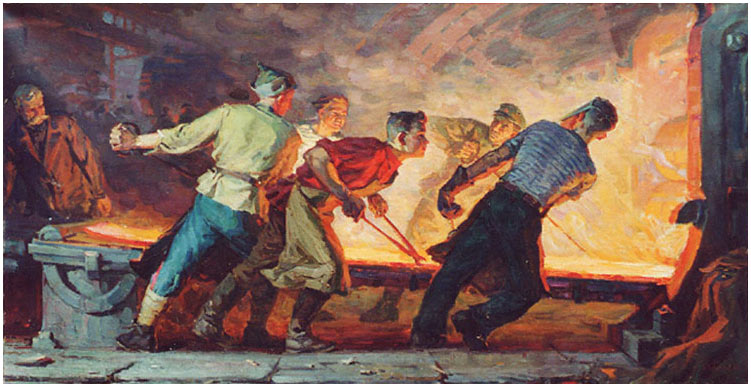 What Is Class to the Radical Left?
What Is Class to the Radical Left?
A "class" is a group of people who have similar roles in the workplace, specifically in creating valuable goods.
How Is This Informative?
On the radical left, the word "class" isn't discussed
in the same gradual levels, the way many people talk about economic classes. We don't typically think about classes like "lower
class," "lower middle class," "middle class,"
and so on.
Almost all radical leftists define classes in capitalism (our main focus of study) in two groups called the "proletariat" (the hip word for workers, most likely your class) and the "bourgeoisie" (the soft-g and the vowel crowded word for bosses).
The Bourgeoisie (not borg-ee-oh-ee-see, in case you're having problems)
The bourgeoisie are said to own the "means of production" under capitalism. That means that individuals, by purchasing or inheriting, come to control the things that, when a worker runs the equipment or station, produce value and wealth (factories, restaurants, construction companies, etc.)
The term "bourgeois" can be confusing beyond pronunciation because it is another term with a specific meaning from the left and a looser definition otherwise. The word comes from a group of middle class merchants under feudalism who started the revolution of capitalism (first in Britain with the factory system). After the series of political revolutions that ousted Kings and weakened aristocracies, the bourgeois state became established in its few forms, favoring the republican model in the West. So, in capitalism, the bourgeois are the wealthiest and most powerful.
Note: many (usually non-leftists) use "bourgeois" as a term for uncultivated taste (from the mouths of aristocrats who were forever dumbfounded by the way these capitalist spent their new wealth).
Suffering engenders passion; and while the prosperous blind themselves,
or go to sleep, the hatred of the unfortunate classes kindles its torch
at some sullen or ill-constituted mind, which is dreaming in a corner,
and sets to work to examine society. The examination of hatred is a
terrible thing. -- Victor Hugo, Les Misérables
So Who Are the Proletariat? Why Are They so Special?
Probably you. Proletarians are generally defined as people who have to sell their labor to gain money in capitalism. The radical left thinks that since the proletariat makes all of the value and does all of the work, they shouldn't be dictated to by any boss (certainly not one that the workers didn't elect and who the workers can't recall at any time). Often times, fear of losing your job keeps people in line, as most people couldn't imagine how they would afford missing out on a single week's paycheck.
Bosses make more money by paying workers less, so that most workers get paid just enough to come back into work to make the boss more profit. One of the things pointed out in the
Communist Manifesto, however, is that capitalism is building the foundation of its own demise. Wealth concentrates through buyouts and acquisitions and closures, shrinking the amount of people that own the businesses. The number people who work for a living increases as fewer and fewer people own
private property, and the workers benefit from a change in society where they are put in charge of the lives and workplaces and governments.
I Can Think of People Who Aren't Either Bourgeois or Proletarian
It is important to remember that very few radical leftists believe
that economies are as simple as workers and bosses. Every day,
situations change. What is important for leftists are class interests, because the different ways you interact with the economy and government, the different policies you'll support in both. Many people don't work in factories but still share class interests with factory workers. Underpaid teachers, custodians, drivers, etc. are all often seen as proletarian on the radical left.
Sometimes, other terms are used (like "lumpenproletariat,"
“labor aristocracy,” and "petit-bourgeoisie" among
others) to define a position in capitalism more finely, but “proletariat” and
“bourgeoisie” are seen as the most important for understanding
how capitalism works and are also perhaps the only
universal class terms on the radical left.
There Is Always an Exception
There are some people that don't emphasize classic working class proletarians as the revolution base (either generally or in a particular place and time). These arguments are
highly charged on the left and break with an argument for revolution that has permeated the radical left since it began.
Regardless, few would seriously argue that strictly proletarians can revolt and lead alone. For example, indigenous populations in Central and South America (the
EZLN, the election of Chavez, etc.) have been crucial members of radical left and broad left coalitions for fighting capitalism and building a more equal, safe, and healthy society.

